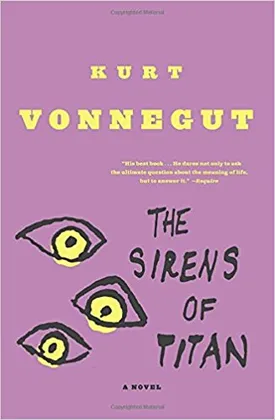Kurt Vonnegut
Kurt Vonnegut is an iconic American author and cultural force who helped define the postmodern literature movement. He wrote numerous best-selling novels and short stories, many of which directly address the consequences of war, poverty, and industrialization, among other issues. Born on November 11, 1922, in Indianapolis, Indiana, Vonnegut was a high-school dropout who went on to serve in the U.S. Army during the Second World War. His experiences as a prisoner of war in the city of Dresden were particularly influential in his writing and have been widely discussed by literary critics.
Kurt Vonnegut wrote fifteen novels and many short stories between 1952 and 1997, the year he died. His first novel, Player Piano, was published in 1952 and told the story of a future America in which machines had replaced nearly all human labor, leaving the population with little useful purpose. This portrayal of an industrialized society predicted the rise of automation in the 20th and 21st centuries, as well as depicting the calamitous effects it could have on human labor. Vonnegut’s writing was famously “black humor” (or “black comedy”), which uses elements of satire, irony, and sarcasm to make difficult or upsetting topics more palatable.
The novel Slaughterhouse-Five, published in 1969, is widely considered to be Vonnegut’s masterwork and one of the defining texts of postmodern literature. After his traumatic experiences during World War II, Vonnegut wrote about the Bombing of Dresden, Germany, and its devastating effect on the city, its people, and its inhabitants. The novel interweaves Vonnegut’s own experiences with a story about a group of aliens who abduct him and attempt to explain human nature. The story is told nonsequentially, often switching between different time frames and perspectives. It has been interpreted in various ways over the years, but it is often viewed as a commentary on the absurdity of war.
Vonnegut’s writing style has been described as “deadpan,” “laconic,” and “absurdist.” Many of his works contain fantastical elements, such as time travel and aliens, and he often dealt with topics like scientific progress, the meaning of life, capitalism, and the dangers of technology. Although Vonnegut used humor in his writing to illustrate the ridiculousness of human behavior, the underlying message in his fiction was often deeply serious and profound.
While Vonnegut is commonly spoken of as a novelist, his eclectic talents allowed him to branch out into many different genres. He wrote two plays, several screenplays and adapted works, autobiographical essays, and even a few futuristic stories. His books have been adapted for film and television, and his story “Welcome to the Monkey House” was adapted into short film in 1968.
In general, Kurt Vonnegut was an incredibly talented and influential author who has had a lasting impact on literature and culture. While his works often contained humor and satirical elements, Vonnegut was a keen observer and commentator of social and political issues. His work continues to be read and studied, and he is fondly remembered as one of the defining authors of the postmodern era.



